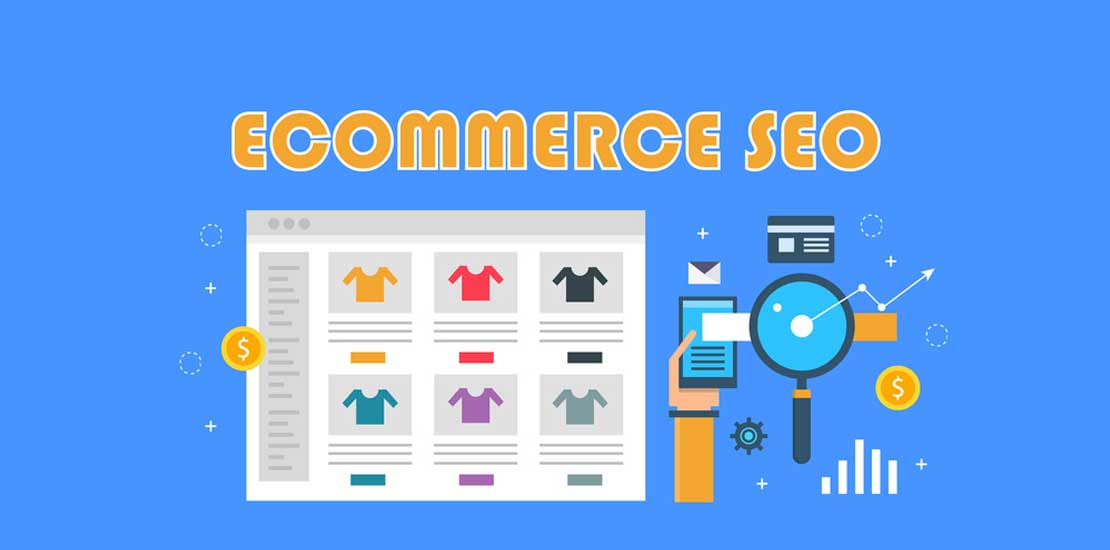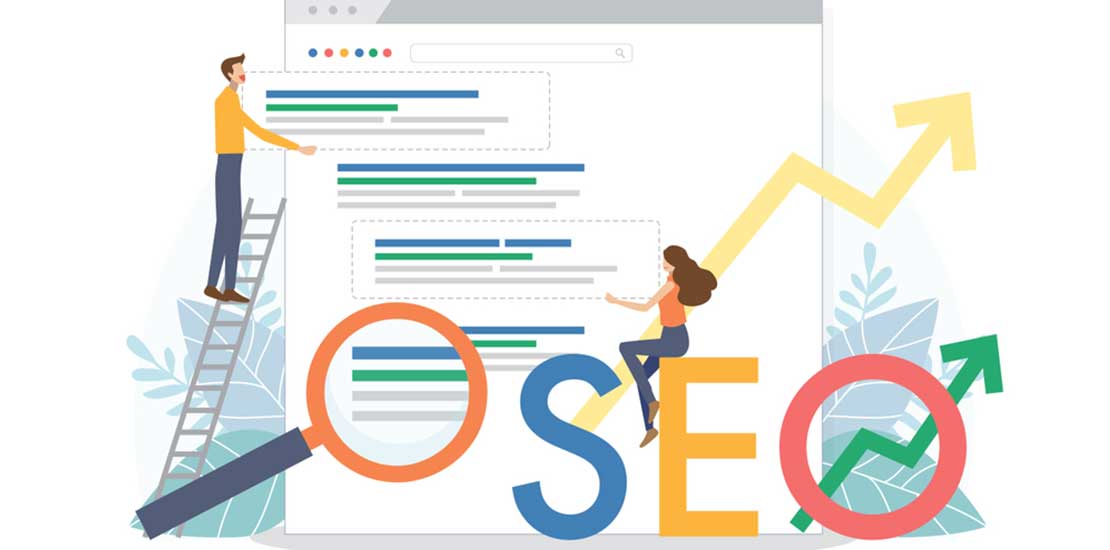Advantages of E-commerce SEO
There is an excessive amount of money being spent daily by consumers all across the globe on e-commerce websites. E-commerce SEO is often the missing piece for businesses that intend to attract new customers and increase revenue. Better visibility on search engine platforms such as Google can massively benefit the growth of an e-commerce business.
Ecommerce SEO is the process of helping online storefronts appear on search engine results pages (SERPs) for relevant search terms, increasing the amount of high-quality traffic visiting your website. Winning traffic is one part of SEO. The other component involves optimizing website pages to create a seamless, intuitive user experience for visitors.

There are many advantages of implementing SEO practices for an e-commerce business. Creating stronger brand awareness and increasing visibility is perhaps the most significant advantage of them all. Brand awareness is one of the fundamental steps for an e-commerce business, and leads and sales usually follow it. Customers need to know who you are and where you’re from before they make purchases from you. E-commerce SEO is one of the most potent tools for driving strong brand awareness.
If you implement paid search as well as SEO, you can place cookies on your website to gather shopper data. As e-commerce SEO drive high-quality visitors to your site, larger remarketing audiences can be created.
Content optimization efforts can yield substantial increases in traffic at little cost. It requires only an understanding of what people search for based on keyword research and the ability to optimize content, access to your content management system, and time.
A strong user experience can be a driving force for conversions. SEO helps understand shoppers and optimizes the site’s user experience, which is also a key driving factor for Google to rank your business higher on search results.

Consistent and Sustainable Growth
Implementing an effective SEO strategy will give your e-commerce business consistent growth.
It will enhance brand identity and visibility, attract consumers and boost sales. But what’s more important is that the growth can be sustained through further SEO maintenance and analysis. Analyzing the results of an SEO campaign will give you fascinating insights into customer behavior and the potential of your e-commerce business. Through our analysis, changes can be made to maximize the effectiveness of the results. SEO for e-commerce opens up opportunities for massive growth as a brand. Sustaining growth is often down to the choice of the business owners.
For any e-commerce site, ranking at the top of search engines is a high priority, and e-commerce SEO can help you achieve this. SEO is a critical necessity for e-commerce websites. Your products need to rank higher than your competitors, and they need to display the right way so potential customers can find the products they need and choose your site to click on.
The core of any effective eCommerce SEO optimization strategy starts with keyword research. Making sure you are targeting the right keywords is essential to your SEO efforts. Focusing on the wrong target keyword can negatively impact your impressions and bring low-converting traffic to your business. For e-commerce keyword research, your strategy should prioritize product-focused keywords, taking into account your homepage, product categories, and blog content.
Effective AND Cost-Effective
Most e-commerce sites need search engine optimization for low-cost brand awareness. Content optimization efforts can yield substantial increases in traffic at little cost. It requires only an understanding of what people search for, the ability to optimize content, access to your content management system, and time. A strong user experience drives conversions. SEO helps understand shoppers and thus optimize your site’s usability.
At Optimus Click, we understand that SEO is an investment in long-term performance. Unlike advertising, its value does not stop when the campaign ends. When it comes to the digital marketing investments of an e-commerce platform, thinking about long-term benefits is essential. Therefore, e-commerce-based SEO campaigns could be the solution to a lot of the marketing needs of an e-commerce business.
FAQ
Links play a vital role in SEO. The consensus is they contribute more 50% to your SEO success. Within SEO, most eCommerce websites struggle the most with link building because it’s something they can’t fully control. However, link building doesn’t have to be that difficult. Like all aspects of SEO, it requires a good strategy and hard work.
Link building is the process of getting other websites to link to yours. All links are counted as votes for your websites, passing on authority, relevancy and trust. Authority plays a significant role in SEO. There are three types of authorities, domain, page, and link authority. The higher the authority, the better it is for your e-commerce website. A relevant link is a link to a page from a topically related page. Trust is the degree to which search engines trust your domain FAQ. All of the links to your website together comprise your website’s so-called ‘link profile’. This is your website’s fingerprint when it comes to links.
Search responds to millions of queries per day, and many are related to e-commerce. Thousands of people a day use search to find a product to buy. With the help of SEO, an online store can be upgraded in Google ranking and increase web traffic. Targeted organic traffic comes from users who know just what they want. These users have clear intentions and enter a query in the search box.
If you have an e-commerce site that sells products that the consumers are looking for, they will find your business using the keywords. With SEO, you can identify and optimize those long-tail keywords to boost your online shop rankings and impact your business.
To improve the positioning of your e-commerce in the search, it is important to create various links between products and the internal content of the site. With the help of SEO, all these fundamentals can be covered.
Today, optimising an eCommerce website for major search engines is much different from optimising any other type of website. Google has specific guidelines when it comes to e-commerce websites. While the basics of technical SEO are pretty much the same for all industries, eCommerce SEO has some pretty unique technical SEO issues that don’t usually happen on other types of websites. The common issues include how to handle the layered navigation, duplicate content issues, different sorting options, crawling issues, specific microdata markup etc. The amount of technical SEO issues to check on an e-commerce website is much larger than the number of issues on a regular website.
























Social Media Marketing
We will make your business reach your clients in their
Read More